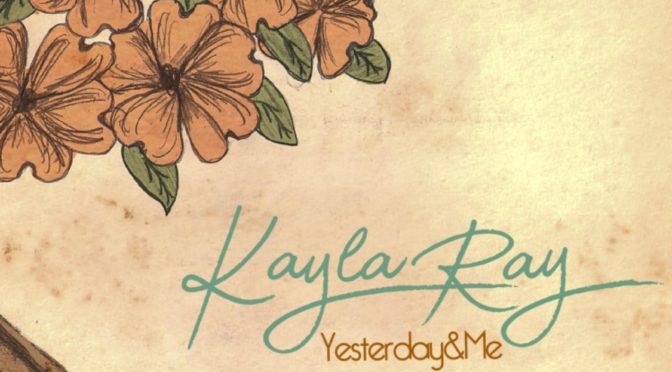Rating: 7/10
I was recently prompted by a discussion on Twitter to think about how many listens it takes me with an album before I can make a decision on it. Some people said they only need a few listens, and others contended that they have to absorb an album continuously for a few days in order to have anything to write. As for me, I said it depends on the albums, and I think as music listeners, sometimes we can forget that, both because of streaming allowing us to hear literally everything and because we get caught up in this cycle of never-ending releases. There are albums I’ve heard that have clicked with me instantly, and I’m sure it’s like that with all of us. You shouldn’t force yourself to like something or try to understand where others’ appeal comes from if that appeal isn’t there for you–after all, with the aforementioned streaming, if you don’t like something, you can move on and find something you do enjoy. There’s too much music, and life’s too short. That said, some records take time to grow; that’s the case for me, and probably for many of us; before streaming, you bought an album from an artist based on a couple songs, and if you didn’t love it at first, you still listened to it past that first time because hell, you paid for it. And magically, on the fourth or fifth take, you might have started loving other parts of that record. I’ve mentioned Ashley Monroe’s Like a Rose before on this platform as being one of my three favorite albums of all time–the whole truth is that I bought the songs from that record on iTunes literally one at a time, as each grew on me. The only song I liked on first listen was “The Morning After.” It just continued to grow on me, and I kept coming back to Ashley’s songs one by one. That process took months, and that album has grown to be one of my favorites ever. All that to say, writers and fellow music listeners, don’t force yourself to like anything, but at the same time, give music its fair time to impact you. Treat it like the art that it is instead of the commodity which streaming has made it.
Kayla Ray’s Yesterday & Me is an album where this caution feels especially warranted because on first listen, it may not capture everyone and did not fully capture me. So much of its beauty reveals itself over time. True, with her extremely traditional leanings, there are some people that will enjoy this in about two seconds flat, the same people who shut off the new Sam Hunt song that quickly simply on principle. In sound, the only record that’s been this traditional thus far in 2018, aside from Joshua Hedley’s almost painfully rigorous exercise in making a traditional record earlier this year, has been Vivian Lev’as Time is Everything, and though not quite as minimalist as that project, it is definitely a sparse affair. Jason Eady had a hand in producing it, which will almost make too much sense to anyone even remotely familiar with his work when they listen to the minimalist production utilized here on this project. And that’s also why you can’t give it one or two listens and be done, and precisely why some will–because on that first casual exploration, it can come off a bit sleepy.
The two songs that did stand out to me that first time, and the reason I kept coming back to this, are the only two on the record that Kayla Ray didn’t write. I would certainly say she’s further along as an interpreter than as a songwriter, but her subtle style of writing contributes to this, and the beauty in her own songs comes through with subsequent listens…but we’re getting ahead of ourselves. The two she didn’t write are the opener, “Rockport,” a simple little song detailing the demons that follow us around no matter how far we run, and a previously unreleased Keith Whitley tune called “Once a Week Cheaters.” This one is a duet with her friend and fellow songwriter Colton Hawkins. Although she didn’t pen these songs, Kayla ray showed great instinct to select them, as they both fit the album and her vocal delivery quite well. The next resemblance to Vivian Leva comes vocally, as Kayla Ray can come off slightly frail as a singer, but she does a fine job selecting songs and stories that suit her and make that a feature rather than a flaw. “Rockport” remains the highlight of the whole thing for me and the one I recommend if you only listen to one song here.
As for Kayla’s writing, it’s very subtle and something it took a few listens for this listener to appreciate. Then it clicked with me–she’d rather paint a sparse picture with less words and let the listener imagine the rest than spell it out with descriptions. That’s not to say that her writing is vague, but we often hold up incredibly descriptive, detailed songwriters as the best, and this style is different to that, telling a story in often few words and letting the listener draw their own conclusions. It makes a song like “Fair Warning,” which deals delicately with domestic abuse, all the more touching because she talks of the hell she endured but doesn’t really tell us what that entailed. It leaves the track more relatable to different people because it’s somewhat open for interpretation. Other self-written songs that stand out here include “Camel Blues,” “Things Only Years Can Teach a Woman,” and the autobiographical “1963.”
I’ve mentioned that it’s traditional and minimal, but it’s not without its variety. “1963” features some nice piano before dissolving into a pretty upbeat, cheerful song to close the album. “Hell of a Day to Drink All Night” provides some energy earlier on the record, and the unexpected tempo change in this one is just cool. As for instrumentation itself, there are times when it’s too minimal, particularly on “Red River Valley’s Run Dry,” but within these parameters, there’s variety as well, from fiddle to steel to dobro. Jason Eady’s fingerprints can be seen all over this because he’s one of the only people who can make a record this quiet and pull it off. It could have had perhaps one more upbeat moment to inject some more life, though.
Fans of really traditional country will probably like this on principle just because of its sound. For people who enjoyed Vivian Lev’as album, there are a ton of similarities to that one–both are sparse and traditional, and both grow on you over time. If you liked that record, I would suggest checking this out. It will no doubt be too sleepy for some listeners, but for the right audience, Yesterday & Me is a solid slice of really traditional-sounding country music.

